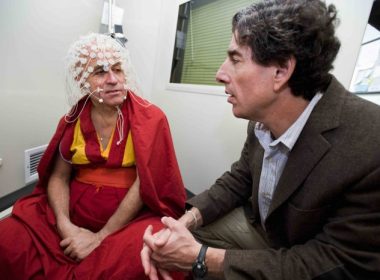The human papillomavirus (HPV) is a multi-strain DNA virus from the papillomaviridae family, and is the most common sexually transmitted infection. While infection most often manifests as either asymptomatic, or in the form of treatable genital warts, certain strains have been identified to cause various life-threatening cancers. These include more[Read More…]
Science & Technology
The latest in science and technology.
Montreal’s first Scientista chapter launches at McGill
A chapter of Scientista, a group dedicated to empowering pre-professional women in science, technology, engineering, and math (STEM) fields has just launched at McGill. After noticing a lack of resources available for women in higher education, Julia and Christina Tartaglia, biology students at Harvard University, founded the Scientista Foundation in[Read More…]
Exploring the world of math
The fast-paced world of finance has always been filled with big numbers. Astronomical numbers. Mind-bogglingly huge numbers that inspire the question: How does this much money even exist? Investors turned to mathematicians for help answering this question. Thus, quantitative finance was born. Simply, quantitative finance is a math-intensive subfield that[Read More…]
McGill professor wins top Canadian science award
Professor Victoria Kaspi, astrophysicist in McGill University’s Department of Physics and Director of the McGill Space Institute, was awarded the Gerhard Herzberg Canada Gold Medal for Science and Engineering, the nation’s top scientific honour, last month. Kaspi is one of the world’s leading experts on neutron stars, tiny stellar remnants[Read More…]
Beyond the brain: Perspectives on mindful meditation
Click each perspective to read more How meditation eased my anxiety Audrey Carleton I’ve grappled with bouts of anxiety and obsessive negative thinking for years now, without realizing what a negative space they took up in my life. As a mechanism to enforce deadline-induced productivity, I frequently overcommit to far[Read More…]
Game design thinking and the realm of possibility
Founded in 1992 by current CEO Remi Racine, Behaviour Interactive is one of the largest and most successful independent game developers in Canada. Their team is made up of over 300 employees and is headquartered here in Montreal. In the last year, Behaviour has worked on games like the award-winning[Read More…]
Police interrogations can be impacted by TASER shocks
The Thomas A. Swift Electric Rifle, known more commonly as a TASER, has historically been seen as the less deadly hand-held alternative to the gun. The device works by dispatching an average of 50,000 volts of shock through two wires that can shoot from up to 10.6 metres away. This[Read More…]
The decline of the Canadian dollar
On Jan. 20, the Canadian dollar (CAD) fell to a new record low: It was the weakest the CAD had been since April 2003. On that day, every Canadian dollar was worth only 68.5 American cents, part of a larger and ongoing decline experienced by the loonie. Since then it[Read More…]
A look into the bioethics of commercialized surrogacy
On Feb. 6, the McGill Journal of Law and Health held its eighth-annual Colloquium, with this year focusing on legal and policy issues concerning assisted reproduction in Canada. The discussion was held by well-known professors, lawyers, and physicians—all meeting to debate and discuss hot topics in Canadian bioethics surrounding reproductive[Read More…]
Rewriting the history of the moon
A research team out of UCLA, when testing the compositions of moon rocks, determined that they possessed a striking similarity to rocks found here on Earth. This has led the scientists to believe that the Earth and the moon have the same origin. McGill Earth and Planetary Sciences professor William Minarik,[Read More…]















